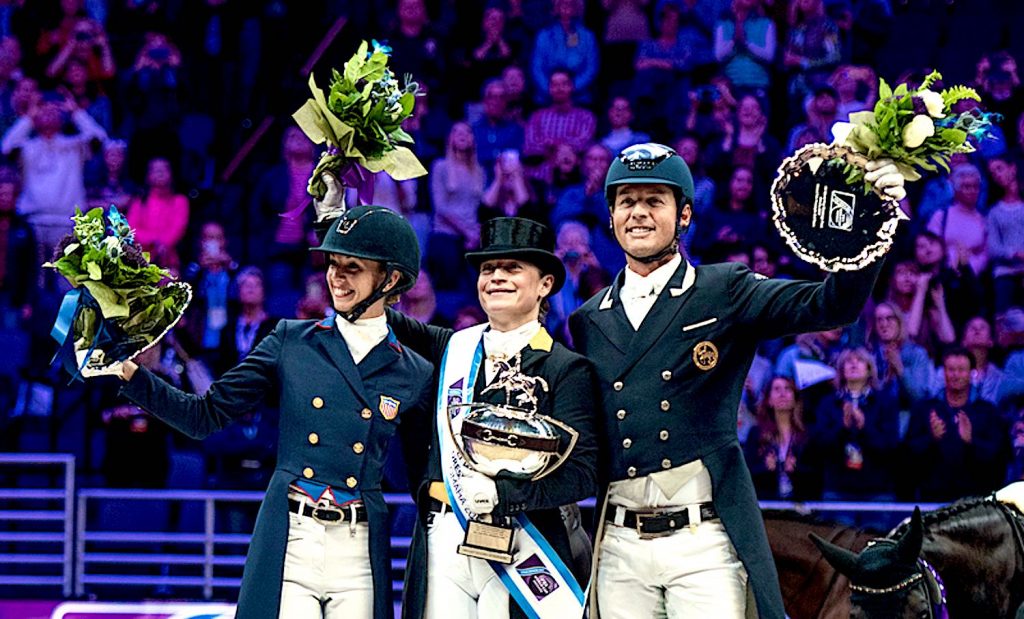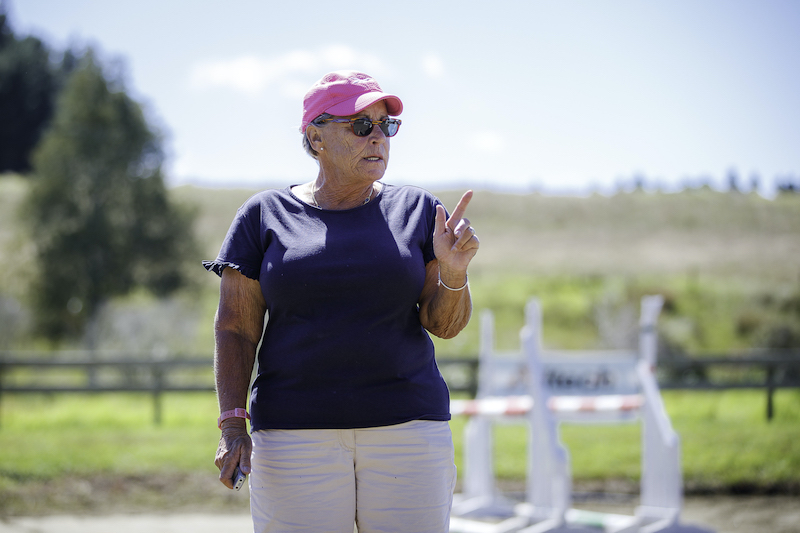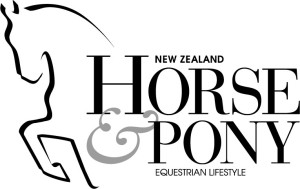What defines true star quality in a rider? Does it come down to having extraordinary feel or courage – or is sheer hard work and determination more important? To find out what it takes to reach the top, we asked some coaches to reveal the personal qualities and daily habits of the highly successful riders they train.

It turns out that winners tend to have quite a few things in common. Top riders:
1. Handle setbacks
Grand Prix dressage rider and top coach Vanessa Way has had her fair share of setbacks over the years and believes how you handle the bad times can make or break you as a rider.
“Most riders hit a lull in their career at some point and the good riders take the knocks. They can handle setbacks, they are really focused, they keep pushing through and they move on,” she says.
“Others have a bad day and they think it’s the end of the world, whereas true professionals understand it’s part of our sport. It’s not all straight sailing. You’ve got to be strong-minded and resilient.”
There are set-backs in most barns and it’s not simply a case of bad luck or bad management, Vanessa firmly believes. “It’s just the design of horses. There is a lot of weight on a joint. It’s unfortunately a numbers game in our sport, because of the high risk that’s involved in running any horse. So the successful riders always have a team of horses, too.”

2. Do their homework
Competition wins don’t come about through luck – they are generally the result of careful planning. Vanessa, who works with some of the country’s most successful riders, including Clarke Johnstone, Gaylene Lennard and Melissa Galloway, says they all have their short-term, medium-term and long-term plans of where they want their horses to be, and at which grade.
“They have very good planning. But again, with our sport you have to be adjustable, due to things like stone bruises and injuries. You must be able to cope with flexibility and if you have a setback know what is realistic and what isn’t.”
Top eventing coach and former international Kirstin Kelly agrees that preparation is a key factor that sets winners apart. “When they go into a competition, they know they’ve done their homework to enable their horse to perform well. That might mean going out cross-country schooling mid-week if they are a bit scratchy with ditches or water, or doing a couple of dressage shows.
“You must always analyse the horse’s weaknesses and strengths. If you’ve got a horse that is beautiful on the flat but his show jumping is poor, you could maybe just do one dressage outing but do a couple of show jumping shows. Because there is absolutely no benefit in rocking up to a horse trial every single weekend, hoping for the best, and having three rails. That is what makes people an also-ran.”
Making sure your training is quality over quantity is another big thing and will help keep your horse sounder, for longer, says Kirstin. “Just because he’s an event horse, don’t feel you have to thrash him. You just want to keep things tuned, so he feels educated and fit and strong.”

3. Have the will to win
True champions tend to be naturally competitive people, according to show jumping coach and six time winner of the Olympic Cup, John Cottle.
“Give me a student who wants to win,” says John. “I think that was my strength – I almost want to win too much. Obviously, natural talent helps. But there are people born with natural talent who don’t become champions because they’re not hungry enough to win. When I went to England, I had to win to be able to eat. We lived on the prize money!”

4. Nail the basics
Riders who win consistently have a solid system in place and pay attention to details. To be successful, riders have to learn to be trainers and have good basics, says John. “It comes back to good old-fashioned classical riding, which is imperative if you’re going to reach the top. How your horses go on the flat is how they’re going to go when they jump. It drives me nuts – I see a lot of nice horses ruined because people ride them badly and they’re not trained properly. If you give a poor rider the best horse in the world, it becomes an average horse.”
5. Have grace under fire
Things don’t always go well in the competition environment and even the best-laid plans can go astray when a horse loses a shoe or some other disaster strikes. However, true winners never falter – the show must go on. Vanessa says her mentor and friend Carl Hester is exceptionally good under pressure. “He’s gone to competitions totally under-prepared, for example when the horse has been pricked by a farrier [and missed work], but he’s a master of his nerves and he just soldiers on. He’s mentally very strong. He trusts his experience in the ring and his knowledge.”
Kirstin agrees that an almost single-minded focus is what sets some riders apart, especially on cross-country. “Cross-country isn’t about being pretty; it’s about getting the job done. The people who are successful have determination and mental toughness, so even when the chips are down, they’ll keep pressing,” she says.
“I remember tripping coming out of the water jump on Baggy Hillis when we were doing the Trans-Tasman. He literally got up out of the water on his knees and I was faced with another jump. I thought ‘We can do that’ – and he did. He just got up and jumped in over a big full vertical into the next water jump. If a horse goes to stumble or swerve, you don’t give up. In fact, I’ve seen Bryce Newman basically fall in the water and his horse stood up and he was still sitting on its back, ready to go. It’s non-negotiable – if things don’t go to Plan A, you must always have Plan B, where you can still make it work.”
6. Believe in themselves
Successful riders are self-driven; they stick to their own beliefs and their plans, says Vanessa. She can think of some very successful riders who started out with not a great deal of natural talent, but have risen to the top through sheer strength of character. “You can have a million people knock you and say you don’t have a natural eye like Clarke Johnstone, but you’ve got to just believe in yourself and keep going.”
7. Have a mentor
The top riders choose their mentors carefully, so they always have someone to turn to for advice. In the early days of her dressage career, Vanessa didn’t have a mentor and struggled in the ring. When she met and began to train with German Olympic medalist Harry Boldt, her Grand Prix scores improved from 50% to the mid 60s. More recently, Vanessa’s mentors have been Carl Hester and Dan Greenwood.
Vanessa says you need to have an honest relationship with your mentor, so they won’t tell you that you’re wonderful when you’re not, but equally they will support you when your ego is a little fragile. She tries to be a strong mentor for her own pupils and encourages them to come to her when they need help.
“Personally, I feel a mentor must show some form of success. There has to be proof that they are actually good at what they do and they can offer me something that is secure or stable. If they haven’t been out there producing the goods or top pupils, they are not necessarily the person that can produce me. Credibility is huge,” she says.
“I’ve never been a believer that you can get a bit from everyone. I’ve always had my own plan and have selected my mentors carefully. A lot of people jump trainers because they lack belief in themselves or they start blaming other people and not taking accountability which is huge in our sport: they blame the horse, the trainer, the husband and last of all themselves, when the reality is it’s probably just themselves!”
8. Do competition-specific training
When Vanessa went to Harry Boldt, the biggest change he made to her riding was teaching her to ride through the Grand Prix test in its entirety at home.
“I could ride piaffe and passage, but could I put it on the spot, at a letter? No. We can all show you a piece of anything, but it’s really hard to ride a test from start to finish. There’s no turning around if things go wrong – it’s like having a miss at a fence when you’ve still got a whole big course ahead of you. You have to suck it up and move on and that’s where I’m really strict on my pupils, so I don’t set them up for failure. If you can ride the test at home, you’re three-quarters of the way there.”
It’s exactly the same when it comes to jumping. John Cottle says people would often compliment him on his skill in the jump-offs, but he always practised them at home.
“Some riders say they don’t jump their horses all that often. But if you’re a swimmer, you swim; if you’re a runner, you run. At home, most days I will do some flatwork and include some little jumps, so I’m practising all those skills.”
9. Are the total package
International jumping coach and author of Stride Control, Jen Hamilton believes a combination of qualities are required to become a star in the ring. First and foremost, the top riders have a true passion for horses and the sport, followed by a love of competition and the desire to be the best.
“They need a strong work ethic, along with sound and consistent horsemanship, a good eye for a horse and the ability to set an appropriate training programme and timetable for competitions, plus a personal health and fitness programme,” she says.
“Riders must have personal integrity, compassion and empathy for their horses, staff and sponsors – nobody becomes a winner on their own.”
Finally, it all comes down to blood, sweat and tears, says Jen. She quotes her friend and long-time student, Merran Hain: “Don’t be a weak lazy bastard and waste talent!”

10. Work on the weaknesses
It goes against human nature but successful riders practise the things they don’t do well, not just the things they find easy, says John. “That’s why you need coaches, to identify what you need to work on and give you exercises to improve it. Videos are a great tool for analysing things. You have to be self-disciplined, because we tend to slip back into bad habits.”
11. Stay in the moment
Sports psychologists refer to it as being ‘in the zone’ – a mental state where time seems to slow down and an athlete can perform with exceptional concentration and skill. Kirstin says that the top riders stay in the moment, focusing on every movement or jump as it happens, not thinking about what they’ve just done or worrying about winning. “If you start focusing on that empty thought of wanting to win, you won’t win – you will just start getting anxious or angry that it’s not good enough. You need to focus on what you’re doing right in that second so you can stay open-minded and work on how to improve it.”
12. Have empathy for the horse
Winning when it comes to horses doesn’t necessarily mean being the one on the podium at the end of the competition, says Grand Prix dressage rider and coach Jody Hartstone. The most important judge of your riding ability is your horse.

“The horse doesn’t care about ribbons and garlands. A good rider should always remember that the horse is a blameless participant in both the training and competing process.
“A great rider should have no ego and should always see things from the horse’s perspective. An understanding of basic horse psychology is a must! By seeing things from the horse’s perspective, a top rider will not take their frustrations out on the horse, but will rely on clear communication channels that have been installed in the horse so the horse can remain calm and respond correctly to everything the rider requires of him.”
A great rider is not the one with the biggest bits and tie downs on the show jumping horse, nor the dressage rider with the tightest noseband and longest curb that may be winning in the ring, says Jody.
“A great rider is one who realises each day what a privilege it is to sit astride a magnificent horse and guide it to be the best it can be in a sympathetic and non-domineering way. These riders are the true winners.”






